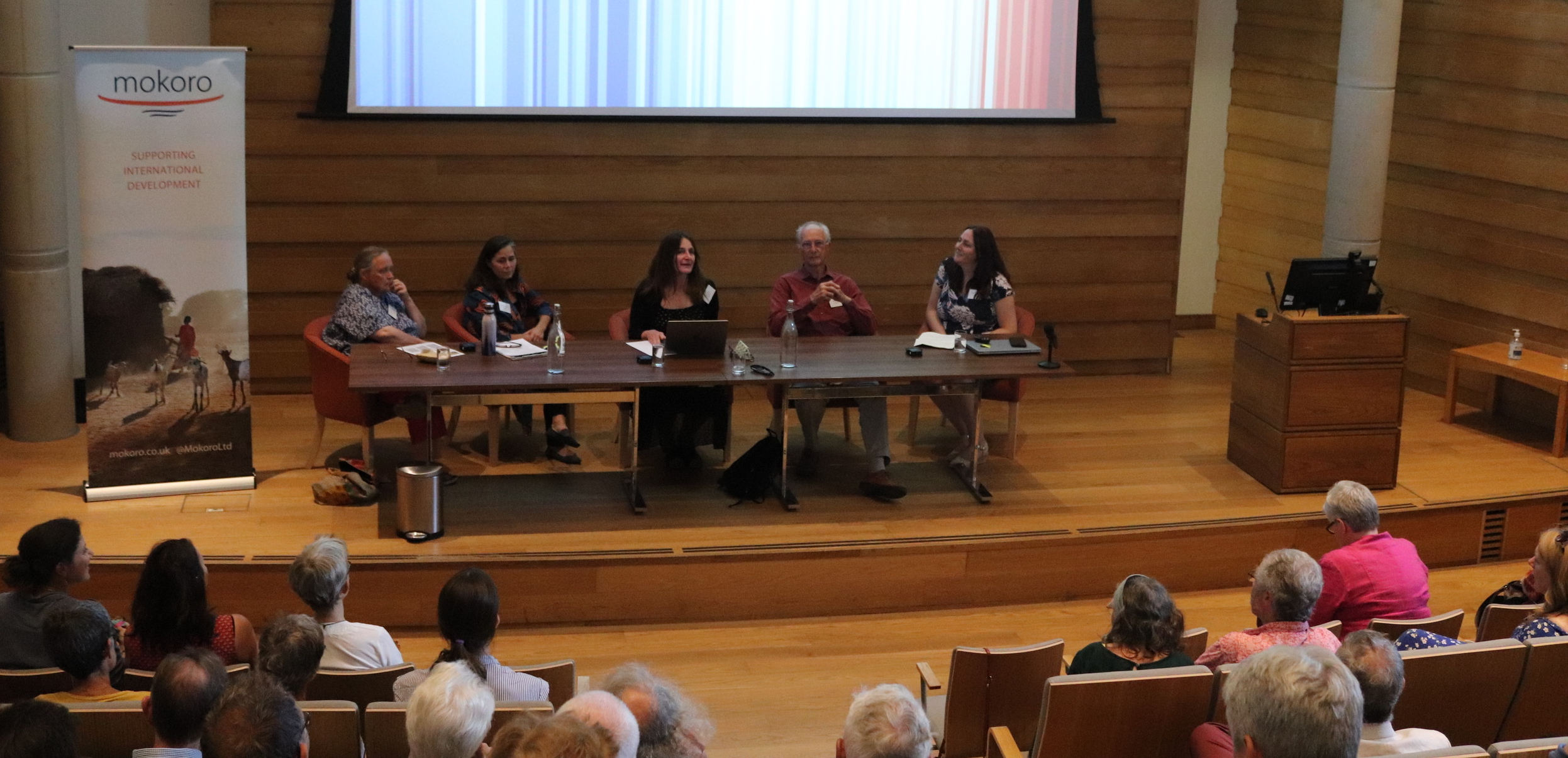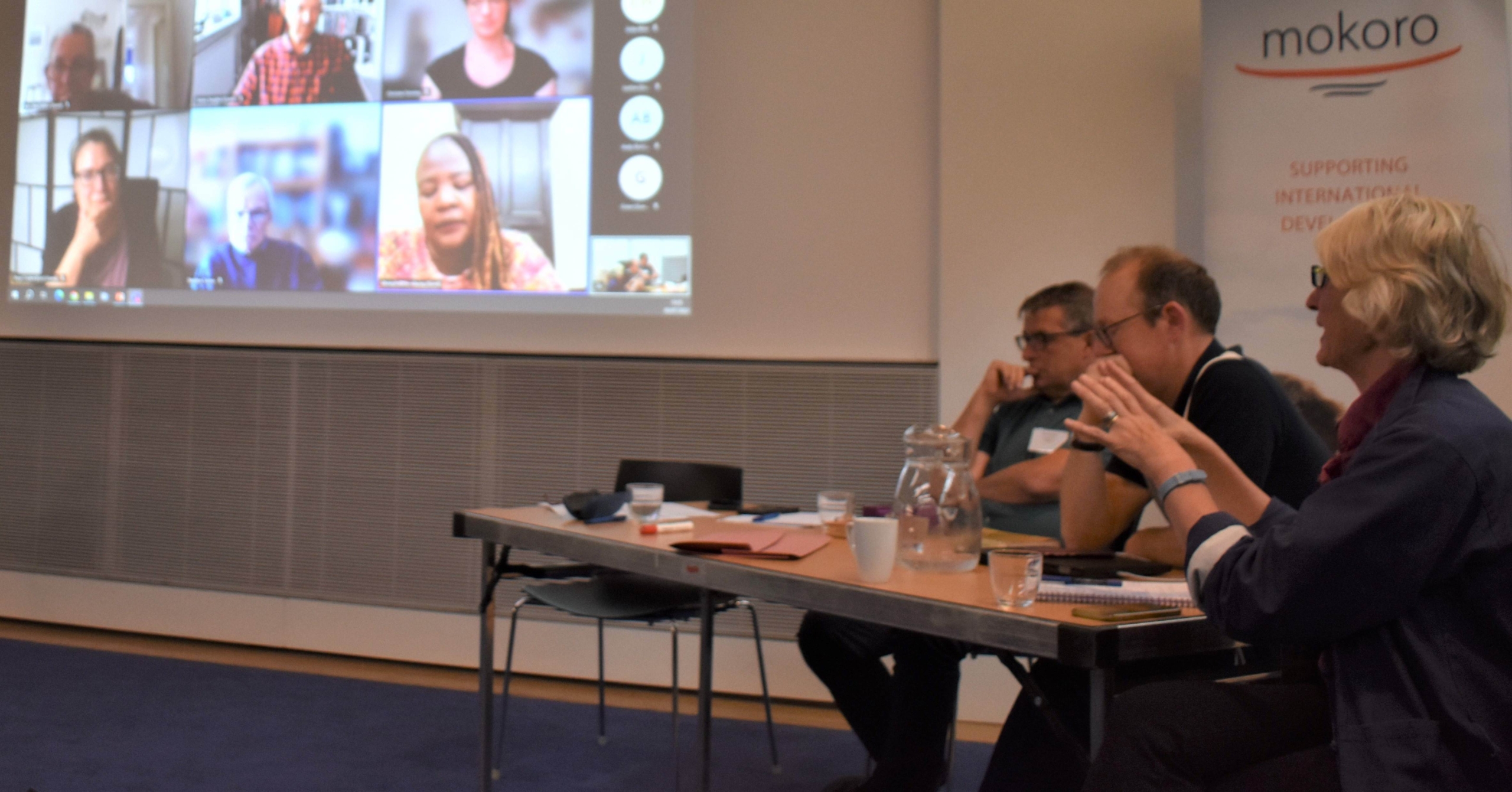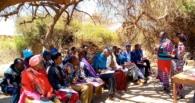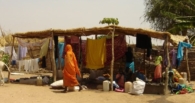Climate change resilience in action
A Mokoro Seminar
Sarah Candy
28 September 2022
/
- 0 Comments
To mark the 40th anniversary of Mokoro, on 21st June 2022, we gathered at Wolfson College, Oxford to explore various sectoral perspectives on practical actions that highlight climate change resilience. Mokoro Principal Consultant Alta Fölscher chaired the event, and guest speakers helped us to explore issues of equality and vulnerability in the face of the climate crisis:
Sarah Candy, Mokoro Research Assistant helped to set the scene around the issues of climate change and justice; Allison Anderson, an expert education policy and programming in crisis and recovery contexts and on climate change education for sustainable development; Geoff Payne, a housing and urban development consultant who has recently published a new book looking at how land and housing can be managed in a more socially and environmentally sustainable manner; and Marlène Buchy, an independent consultant who has worked extensively on natural resource management issues specialising in gender and social equity.
Allison began by offering education as an opportunity in the otherwise hopeless climate crisis. Climate change is impacting children’s education, their ability to thrive, learn and survive. Children are experiencing three times as many climate disasters as their parents[1]. However, education can be used to teach about changing consumption and production patterns (mitigation) as well as teaching children to prepare for and respond to future climate risks and uncertainty (adaptation). For instance, recent research shows that if only 16 percent of high school students in high- and middle-income countries were to receive climate change education, we could see a nearly 19 gigatonne reduction of CO2 by 2050[2]. There is currently no global climate change education framework but common components of frameworks include:
- Quality, equitable and inclusive education for girls and boys (Sustainable Development Goal 4), including literacy, numeracy and age appropriate environmental, climate and energy literacy, multi-hazard risk reduction education, education for sustainable cooperation
- Relevant skills for 21st century lives and livelihoods, such as issue analysis and decision making skills within critical thinking and problem solving
- Safe, climate resilient and sustainable learning spaces and school disaster management. In addition to providing a safe space for learning, such learning spaces can also act as a good practice model for teaching and learning about sustainability and sustainable consumption
Critical cross-cutting issues across these components are empowering children as agents of change; building on indigenous and local knowledge; strengthening linkages between education policy makers and climate researchers; and strengthening teacher education. In addition, hands-on, active and solution-oriented teaching and learning focused on local, tangible and actionable aspects of climate change and sustainability, especially those that can be addressed by individual behaviour, have longer-term impact.
Using examples from the Philippines, where 60 percent of the population lives on the coast at risk of flooding, Allison highlighted the ambitious government plans to enhance climate education; risk reduction strategies that are child-centred; and community-level informal educational activities such as after school clubs including tree planting, mangrove reforestation and climate science youth program. In the Philippines, youth are spearheading the climate justice movement, along with women and indigenous groups.

L-R: Marlène Buchy, Allison Anderson, Alta Fölscher, Geoff Payne, Sarah Candy. Photo by Mokoro
Geoff quoted the head of IMF as talking about a confluence of calamities[3]: a combination of social, environmental, political issues that are all coming to the fore at the same time. Cities contribute no less than 40 percent of global emissions and given current demographic trends, this is likely to increase over time[4]. In addition, 55 percent of the world’s population are now living in cities which is projected to increase to 68 percent by 2050, representing a total urban population of 2.5 billion in just over 30 years. Nearly 800 million urban dwellers will live in sub-Saharan Africa[5].
There are four major impacts in cities:
- The local energy system: current energy use and consumption levels would require the resources of three planets[6]. Poorer countries using local non-renewable energy sources
- Water supply, demand and wastewater treatment: many cities are suffering a water supply shortage with few alternative supply options.
- Transportation, vehicle emissions are a major cause of death and bad health. Bangkok’s traffic police are trained in midwifery.
- Public health, 49 of the world’s 50 most polluted cities are in the Indian sub-continent.
Urban planning is making things worse. Geoff shared some examples from Vietnam and Indonesia. Some parts of Jakarta are sinking at 25cm a year due to the extraction of underground water sources. In Ho Chi Minh City, there has been a huge increase in rain fall and associated flooding, storms that delivered 100 mm of rainfall in three hours previously occurred once in four years, but now occur four times annually and the drainage system cannot cope. In Chennai, basic drainage has not been addressed, and yet, Chennai is classified as one of India’s 100 ‘smart cities’.
Geoff discussed ways in which to rise to this challenge. For example, by managing increased demand for land and housing due to population increase and urbanization, and by reducing inequality in terms of wealth distribution. He argued that we need to review and revise regulatory frameworks or urban planning standards, regulations and administrative procedures and ensure they are based on realities not aspirations. We should promote a wide range of non-market and communal forms of land tenure and property rights; promote the concept of the circular economy; avoid tall buildings and build on vernacular traditions; and improve public transport.
Marlène began by reminding us that gender is a social concept, a construction that shapes roles and relationships between men and women and based on unequal power relationships, and how this relates to climate change vulnerability. Women are disproportionately affected by climate change compared with men. Typically, they have less access to financial and natural capital (land tenure) and less influence over decision making than men. They have lower levels of education (eg. in Cameroon 54 percent girls in secondary education compared to 68 percent boys[7]). Women also depend more on natural resources for subsistence.
Marlène used examples from Nepal to highlight the justice issues around gender and climate change. There are strict gender roles set by the caste system. Nepal has highly progressive gender and social inclusion policies but these have not translated into practice. Climate change adaptation interventions are infrastructure focused and power blind, possibly because local authorities, donors and bureaucrats are male and high castes dominated; consequently projects tend to be designed in ways that do not address power imbalance and social injustice. In Nepal, the higher-caste population occupies the majority of positions of power and policy decision-making roles.
When it comes to evaluations of climate change programmes, Marlène cautioned us to focus on outcome as opposed to output indicators, not just for gender but for understanding vulnerability and power relations. Gender dimensions should be integrated within questions rather than separate gender focused questions. And, of course, each team should include someone with gender expertise!
Questions for the panel covered a wide range of topics including, the curriculum of climate change education, the engagement of world leaders, the role of private sector companies, technological innovations, capitalism, climate activism, regulatory and policy frameworks, climate friendly agriculture, and the mental health effects of the climate crisis.
We were delighted to welcome over 50 attendees to our event, representing Mokoro founders, current staff and consultants, and close friends and associates, both new and old. Lively discussions followed the seminar at an anniversary drinks reception, held in the grounds of Wolfson College. It was a great chance to catch up with old friends and make new acquaintances. We look forward to welcoming you to our 50th anniversary event!
[1] https://www.science.org/doi/10.1126/science.abi7339
[2] https://journals.plos.org/plosone/article?id=10.1371/journal.pone.0206266
[3] https://blogs.imf.org/2022/05/22/why-we-must-resist-geoeconomic-fragmentation-and-how/
[4] https://www.un.org/en/climatechange/climate-solutions/cities-pollution
[5] https://www.un.org/development/desa/en/news/population/2018-revision-of-world-urbanization-prospects.html
[6] https://www.bbc.com/news/magazine-33133712
[7] https://reliefweb.int/report/world/mind-gap-state-girls-education-crisis-and-conflict



